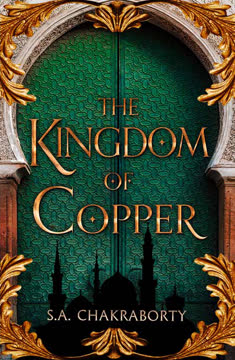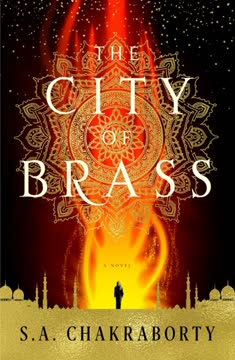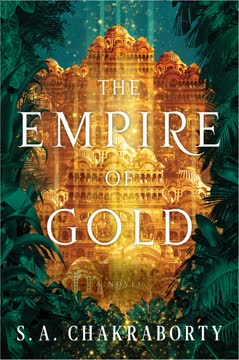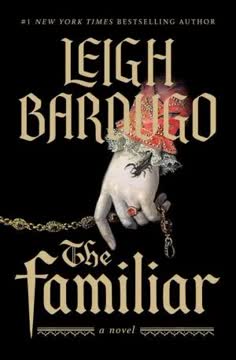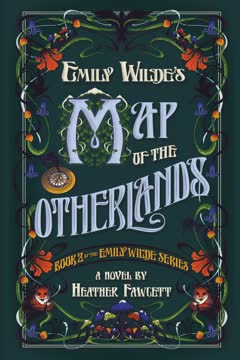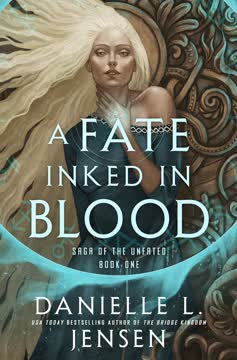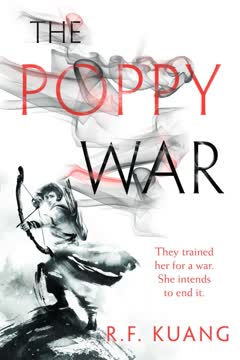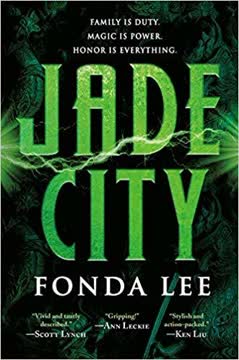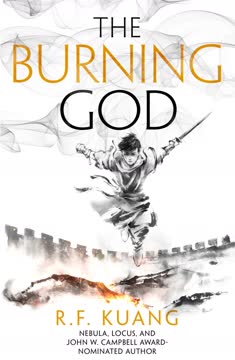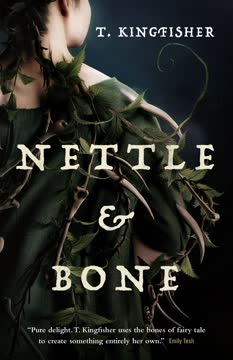Plot Summary
Exile and Betrayal
Prince Alizayd al Qahtani, exiled from Daevabad by his father King Ghassan, is thrust into the harsh desert, betrayed by his own caravan. Alone and hunted, Ali's survival instincts and latent magical abilities—gifts from the marid, ancient water spirits—emerge as he miraculously draws water from the barren sand. Rescued by Geziri tribespeople, Ali is forced to confront the consequences of his family's politics and his own idealism. The pain of exile is sharpened by the knowledge that his actions, meant to help the oppressed shafit, have only deepened the city's divisions. Ali's journey through the desert is both a physical and spiritual trial, forging him into a man who must reckon with the cost of loyalty, faith, and the burden of being a prince in a city built on centuries of blood and betrayal.
A Marriage of Enemies
Nahri, the last Nahid healer, is forced into a political marriage with Muntadhir, the Qahtani heir, to unite warring tribes. The wedding night is a tense, awkward dance between two strangers bound by duty and mutual distrust. Nahri's heart aches for Dara, her lost Afshin protector, and she feels the weight of her new role as both a symbol and a prisoner. The palace is a gilded cage, and every gesture is watched, every word potentially fatal. Muntadhir, charming yet wounded, is as much a victim of his father's machinations as Nahri. Their uneasy truce is built on shared vulnerability, but the threat of violence and the ghosts of past loves haunt every moment. Nahri's isolation is deepened by the knowledge that her choices—or lack thereof—will determine the fate of her people.
Afshin's Resurrection
In a realm between life and death, Dara is pulled from peaceful oblivion by Manizheh, Nahri's mother and the most powerful Nahid. Reborn in a form free of Suleiman's curse, Dara is both marvel and abomination, his fiery power now unbound. Haunted by guilt and the memory of his crimes, Dara is thrust into Manizheh's plot to reclaim Daevabad for the Daevas. The ifrit, ancient enemies, are now uneasy allies, and Dara's loyalty is tested as he is forced to confront the monstrous legacy of his past. The promise of redemption is shadowed by the knowledge that his resurrection is not a gift, but a weapon in a war that will demand new atrocities. Dara's longing for Nahri and his people is matched only by his dread of what he must become.
Chains of Power
Trapped in the palace, Nahri navigates a web of surveillance, threats, and political games. Every attempt at independence is met with brutal consequences for those around her. Her only solace is in her healing work and the rare moments of connection with Zaynab, her sister-in-law, and Jamshid, her friend. The palace itself seems to awaken to her presence, its ancient magic responding to the return of a Nahid. Yet, Nahri is constantly reminded that her power is circumscribed by the whims of men—Ghassan, Muntadhir, and the priests who see her as both savior and threat. The cost of resistance is high, and Nahri must decide how much of herself she is willing to sacrifice for her people and her own survival.
The Gilded Prison
The city of Daevabad is a place of splendor and rot, where ancient grudges simmer beneath the surface. Ghassan's rule is absolute, maintained through fear, violence, and the manipulation of tribal rivalries. Nahri's every move is watched, and her attempts to help her people are met with suspicion and sabotage. The Daevas are marginalized, the shafit oppressed, and the city's fragile peace is maintained by the constant threat of retribution. Nahri's marriage is a performance, her healing a small rebellion. The palace is both a sanctuary and a prison, and Nahri's longing for freedom is matched only by her fear of what will happen if she steps out of line.
Secrets Beneath the City
Nahri and Zaynab, seeking escape from the palace, stumble upon the ruins of the ancient Nahid hospital. Within its crumbling walls, they find a hidden community of freed ifrit slaves—Razu, Elashia, and Issa—who have survived centuries of persecution. The hospital is a symbol of lost glory and a potential foundation for Nahri's dream of healing all Daevabad's peoples. The discovery is both a revelation and a danger, as the history of the hospital is soaked in blood—its destruction a brutal act of vengeance during the Qahtani conquest. Nahri's connection to her ancestors deepens, but so does her awareness of the city's capacity for violence and betrayal.
Water and Blood
In Bir Nabat, Ali finds a semblance of peace, using his marid-given powers to bring water and prosperity to the desert village. Yet, he is never free from the threat of assassination or the burden of his past. The arrival of Musa, a scheming Ayaanle cousin, drags Ali back into the city's politics, forcing him to confront the reality that Daevabad's problems cannot be solved from afar. Ali's powers are both a blessing and a curse, marking him as something other, even among his own people. The tension between his desire for a simple life and his sense of duty to Daevabad grows, setting the stage for his reluctant return to the city and the coming storm.
The Hospital's Legacy
Inspired by the ruins of the Nahid hospital and the skills of shafit healers like Subha, Nahri dreams of rebuilding a place where all can be healed, regardless of blood. She faces resistance from every side—Daeva elders, the Qahtanis, and the shafit themselves, who distrust her motives. With Ali's help, she navigates the treacherous politics of the palace, securing reluctant support for her project. The hospital becomes a symbol of hope and a battleground for the city's future, as Nahri's vision challenges the entrenched hierarchies of Daevabad. The dream of healing is threatened by the reality of violence, prejudice, and the ghosts of the past.
Schemes and Alliances
As Navasatem approaches, alliances shift and old wounds are reopened. Kaveh, the Daeva grand wazir, conspires with Manizheh and Dara to overthrow the Qahtanis, while Ghassan tightens his grip on the city. Muntadhir and Ali's relationship fractures under the weight of their father's expectations and their own secrets. Zaynab, caught between loyalty and conscience, becomes a quiet force for change. The shafit, long oppressed, begin to organize, and the city teeters on the edge of chaos. Every character is forced to choose between loyalty to family, tribe, or a vision of a better future.
The Poisoned Feast
During a lavish feast to celebrate Ali's return, he is poisoned with a deadly magical substance that reacts violently to Suleiman's seal. Nahri's desperate healing saves his life, but the attack exposes the city's deep divisions and the vulnerability of the royal family. The investigation that follows is a web of lies and half-truths, as old enemies seize the opportunity to strike. The poisoning is a harbinger of the violence to come, and the fragile peace of Daevabad is shattered. Nahri's role as healer and political actor becomes more perilous, and the city's future grows ever more uncertain.
The Shafit Uprising
A brutal attack on a shafit workcamp, orchestrated by Kaveh to discredit Nahri's alliance with the shafit, sparks a cycle of vengeance. The Daevas retaliate, and the city descends into chaos. Nahri's dream of unity is threatened as trust between the tribes and the shafit collapses. Ali, caught between his ideals and his family, is forced to take drastic action, seizing the Citadel and calling for an end to the violence. The uprising exposes the city's deepest wounds, and the cost of peace becomes ever more apparent. Nahri and Ali's partnership is tested as they struggle to hold Daevabad together.
The Nahid Dream
The Nahid hospital is rebuilt, a testament to Nahri's vision and the hard work of shafit and Daeva alike. The opening celebration is a moment of hope, but it is quickly shattered by a terrorist attack during the Navasatem procession. Shafit militants, armed with human weapons and Rumi fire, unleash carnage on the Daeva parade, killing dozens—including Nahri's beloved mentor, Nisreen. The dream of healing is drowned in blood, and Nahri is left to pick up the pieces. The attack is a turning point, hardening hearts and setting the stage for the final confrontation over the soul of Daevabad.
The King's Gambit
In the aftermath of the attack, Ghassan moves to reassert control, framing Kaveh and Nahri for conspiracy and threatening to execute them unless Ali surrenders. The king's manipulations are exposed, and his cruelty is laid bare. Kaveh, driven by grief and vengeance, unleashes a deadly magical poison that kills Ghassan and every Geziri in the palace. The balance of power shifts violently, and the city is plunged into chaos. Nahri is forced to choose between loyalty to her newfound family and the greater good, as the cost of survival becomes ever more personal.
The Marid's Warning
As Daevabad burns, Ali is haunted by visions from the marid, who reveal the ancient bargain that shaped the city and warn of the return of old powers. The marid's magic, once a source of life, is now a force of destruction, and Ali's connection to them becomes both a weapon and a curse. The city's magic begins to unravel, and the boundaries between worlds grow thin. The marid's warning is clear: the cycle of vengeance and violence will only end in ruin unless a new path is chosen. Ali and Nahri must decide whether to embrace the power offered to them or find another way.
The Night of Ashes
Dara and Manizheh's forces, aided by the ifrit and the unleashed poison, storm the palace. The Citadel is destroyed, the Royal Guard slaughtered, and the city's magic is broken. Nahri and Ali, desperate and outnumbered, retrieve Suleiman's seal from Ghassan's corpse. In a final act of defiance, Nahri tricks Manizheh, giving her a false ring and escaping with Ali into the lake. The city is left in ruins, its future uncertain, as the old order is swept away in fire and blood. The survivors are scattered, and the dream of Daevabad is shattered.
The Fall of Daevabad
As the palace falls, Nahri and Ali are forced to confront the cost of their choices. Muntadhir sacrifices himself to buy them time, and Dara, torn between loyalty and conscience, is left to face the consequences of his actions. Nahri's reunion with her mother is fraught with pain and betrayal, as the truth of her heritage and the limits of her power are revealed. In a desperate gamble, Nahri and Ali use Suleiman's seal to break the city's magic and escape through the lake, leaving Daevabad behind as a new dawn rises.
The Ring and the River
Nahri and Ali awaken in the ruins of a mosque on the banks of the Nile, Suleiman's seal still burning on Ali's brow. The city of Daevabad is lost to them, but they are alive, and the possibility of a new beginning glimmers on the horizon. The pain of exile is tempered by the hope that, together, they can build something better. The river flows on, carrying them toward an uncertain future, as the cycle of vengeance and violence is broken—if only for a moment.
Characters
Nahri
Nahri is the last of the Nahid healers, a woman forged by hardship and loss. Raised in Cairo as a con artist, she is thrust into the deadly politics of Daevabad, where her power is both a blessing and a curse. Nahri's journey is one of self-discovery and resistance—she refuses to be a pawn, fighting for agency in a world that seeks to control her. Her relationships are complex: she is torn between love for Dara, loyalty to her people, and a growing partnership with Ali. Nahri's greatest strength is her compassion, but it is also her vulnerability. She dreams of healing and unity, but is constantly confronted by the city's cycles of violence and betrayal. By the end, Nahri is both a symbol of hope and a survivor marked by the cost of her choices.
Ali (Alizayd al Qahtani)
Ali is the youngest Qahtani prince, a man of faith and principle caught between loyalty to his family and his conscience. Gifted with marid magic, he is both powerful and isolated, his abilities marking him as other. Ali's exile and return force him to confront the limits of idealism in a world built on compromise and blood. His relationships—with Nahri, his siblings, and his people—are fraught with love, guilt, and the burden of leadership. Ali's journey is one of reckoning: he must decide whether to accept the role of a weapon, a ruler, or a healer. His greatest fear is that his actions will only perpetuate the violence he seeks to end, and his ultimate choice is a leap of faith into the unknown.
Dara (Darayavahoush e-Afshin)
Dara is the legendary Afshin, resurrected to serve as Manizheh's weapon in the war to reclaim Daevabad. Freed from Suleiman's curse, his power is both awe-inspiring and monstrous. Dara is tormented by guilt for his past crimes, especially the massacre at Qui-zi, and by his love for Nahri—a love that is both redemptive and destructive. His loyalty to Manizheh and the Daevas is absolute, but it is also a chain, binding him to a cycle of violence he cannot escape. Dara's struggle is deeply psychological: he is both victim and perpetrator, desperate for peace but unable to break free from the role of the Scourge. His final acts are those of a man seeking atonement, even as he is swept up in forces beyond his control.
Muntadhir al Qahtani
Muntadhir is the Qahtani crown prince, a man raised to rule but crushed by the expectations of his father and the weight of his own desires. His marriage to Nahri is a political alliance that becomes a source of pain and resentment. Muntadhir's love for Jamshid, his closest friend, is a secret that shapes his every choice. He is both a victim and an enabler of his father's cruelty, torn between loyalty and conscience. Muntadhir's arc is one of tragic self-destruction: he seeks solace in pleasure and performance, but is ultimately forced to confront the cost of his complicity. His final sacrifice is an act of love and redemption, a last attempt to protect those he failed.
Manizheh
Manizheh is Nahri's mother and the most powerful Nahid of her generation. Driven by grief, ambition, and a fierce love for her children, she orchestrates the plot to retake Daevabad. Manizheh is both visionary and ruthless, willing to unleash horrors to achieve her goals. Her relationship with Nahri is fraught with longing and betrayal, as she seeks to mold her daughter into a weapon for the Daevas. Manizheh's psychological complexity lies in her ability to justify any act for the sake of her people, even as she mourns the cost. She is both savior and destroyer, a woman who embodies the contradictions of power and love.
Kaveh e-Pramukh
Kaveh is the Daeva grand wazir, a man whose loyalty to Manizheh and the Nahids is matched only by his love for his son, Jamshid. He is a master of political maneuvering, willing to orchestrate violence and betrayal to protect his tribe. Kaveh's complicity in the attack on the shafit camp and the assassination of Ghassan reveals the depths of his desperation. He is both a tragic and a dangerous figure, torn between conscience and survival. Kaveh's arc is one of increasing isolation, as his choices alienate him from those he loves and the city he sought to save.
Jamshid
Jamshid is Kaveh's son, a man marked by trauma and longing. Once a promising warrior, he is left crippled by Dara's attack and struggles to find purpose. His love for Muntadhir is a source of both strength and pain. Jamshid's true heritage as a Nahid is a secret that shapes his fate, and his journey is one of self-discovery and sacrifice. He is both a victim of the city's violence and a potential key to its future, embodying the possibility of healing and reconciliation.
Zaynab
Zaynab is the Qahtani princess, a woman who navigates the palace's dangers with grace and intelligence. Often underestimated, she is a quiet force for change, using her position to protect her family and advocate for the oppressed. Zaynab's loyalty is to her loved ones, but she is not afraid to challenge her brothers or her father when conscience demands. Her arc is one of growing agency, as she steps out of the shadows to shape Daevabad's future.
Subha Sen
Subha is a shafit physician whose skill and courage make her an essential ally in Nahri's dream of a new hospital. She is fiercely protective of her family and her people, and her skepticism of Nahri's motives is rooted in centuries of betrayal. Subha's arc is one of cautious hope, as she dares to believe in the possibility of change while never forgetting the cost of trust. She is a reminder that healing is both a personal and a political act.
Lubayd and Aqisa
Lubayd and Aqisa are Ali's closest companions in exile, warriors from Bir Nabat who embody the resilience and humor of the Geziri people. Their loyalty to Ali is unwavering, and their presence grounds him in the values of home and community. Lubayd's tragic death is a devastating loss, while Aqisa's courage and skill make her a vital ally in the city's darkest hours. Together, they represent the possibility of friendship and solidarity across tribal lines.
Plot Devices
Cycles of Violence and Vengeance
The narrative is structured around the recurring cycles of violence that define Daevabad's history. Every attempt at peace is undermined by old wounds and the desire for retribution. The use of parallel plotlines—Nahri's struggle for healing, Ali's quest for justice, Dara's descent into violence—mirrors the city's inability to break free from its past. Foreshadowing is woven throughout: the destruction of the Nahid hospital, the poisoning at the feast, the marid's warnings, and the repeated betrayals all point toward the inevitable collapse. The breaking of Suleiman's seal and the unraveling of magic serve as both literal and symbolic ruptures, forcing the characters to confront the cost of their choices and the possibility of a new beginning.
Duality and Identity
Characters are constantly forced to navigate dual identities: Nahri as both healer and con artist, Daeva and shafit; Ali as prince and exile, djinn and marid-touched; Dara as weapon and lover, victim and perpetrator. The use of hidden rooms, secret passages, and magical disguises reinforces the theme of masks and the difficulty of knowing oneself or others. The revelation of Jamshid's heritage, the truth of Nahri's parentage, and the marid's manipulation of Ali all serve to destabilize fixed identities and challenge the boundaries between tribes, families, and even species.
The Hospital as Symbol
The Nahid hospital is both a literal setting and a powerful symbol. Its ruins represent the lost glory of the Daevas and the violence that destroyed it. Its rebuilding is a site of hope, a place where Nahri's vision of unity and healing can be realized. Yet, it is also a battleground, contested by every faction in the city. The hospital's fate mirrors that of Daevabad itself: a place of possibility, haunted by the ghosts of the past, and always on the brink of destruction.
Magical Realism and Political Intrigue
The novel's world is rich with magical creatures, ancient curses, and supernatural powers, but these elements are always grounded in the political realities of Daevabad. Magic is both a tool and a weapon, its use shaped by the ambitions and fears of those who wield it. The structure of the narrative—alternating perspectives, interwoven plotlines, and shifting alliances—reflects the complexity of the city's politics. The use of letters, secret meetings, and coded language adds layers of intrigue, while the ever-present threat of violence keeps the stakes high.
Analysis
The Kingdom of Copper is a masterful exploration of the ways in which history, trauma, and the desire for justice shape individuals and societies. Chakraborty's Daevabad is a city where every act of healing is shadowed by the memory of violence, and every attempt at peace is haunted by the ghosts of betrayal. The novel interrogates the limits of idealism and the dangers of vengeance, asking whether it is possible to break free from cycles of retribution and build something new. The characters are deeply human—flawed, wounded, and yearning for connection. Nahri's dream of a hospital is both a literal and metaphorical hope for a future where difference is not a cause for violence, but a source of strength. Yet, the novel refuses easy answers: every victory is paid for in blood, and the cost of change is borne by those least able to pay it. In the end, The Kingdom of Copper is a story about the possibility of redemption—not as a return to innocence, but as the hard-won result of courage, sacrifice, and the willingness to imagine a better world.
Last updated:
Review Summary
The Kingdom of Copper is widely praised as an excellent sequel, surpassing its predecessor. Readers appreciate the complex political intrigue, character development, and rich world-building. The time jump and multiple POVs add depth to the story. Many find the pacing improved, with a gripping second half. The characters, especially Nahri and Ali, are well-developed and compelling. Some readers express frustration with Dara's character arc. The book's ending leaves readers eagerly anticipating the final installment in the trilogy.
